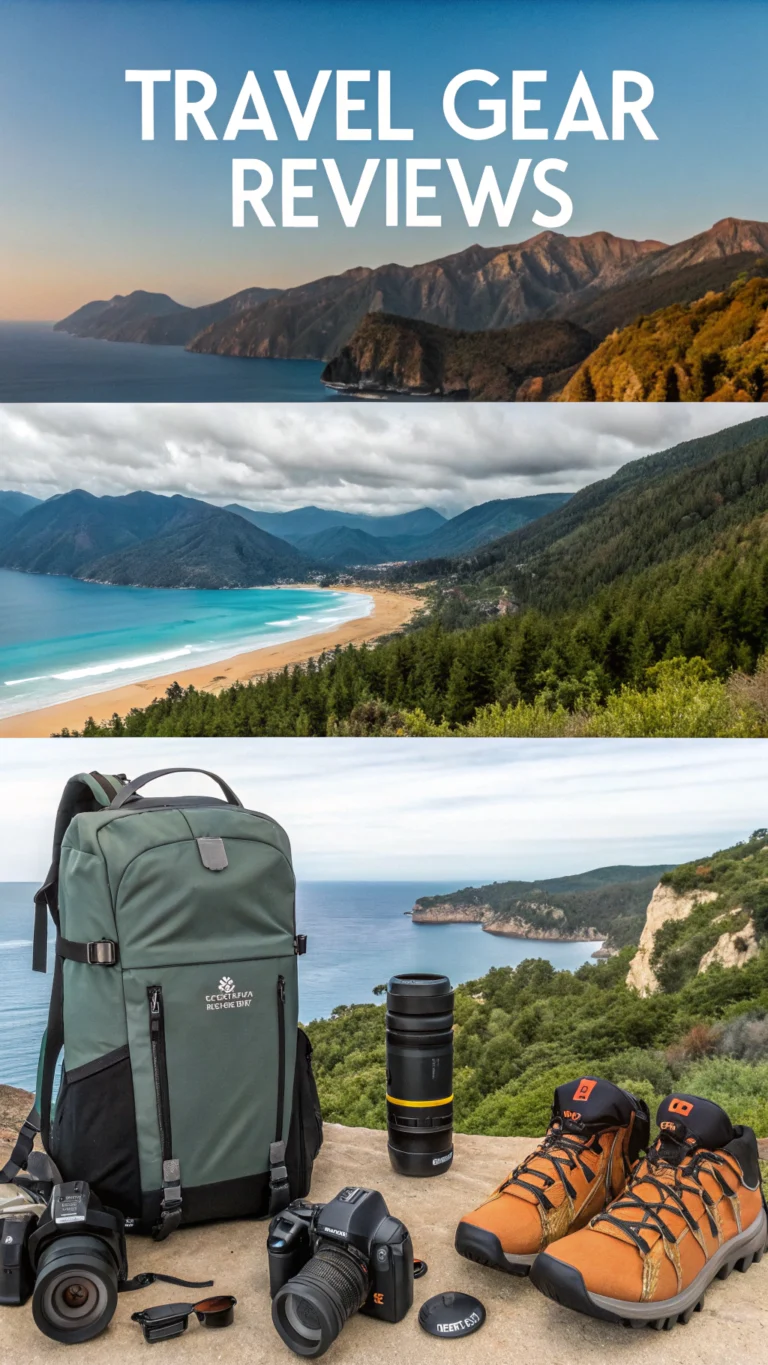14 Common Travel Scams and How to Avoid Them
Traveling is one of the most rewarding experiences in life, but it also comes with certain risks—especially for tourists. One of the most common dangers is falling victim to travel scams, which happen all around the world.
From simple pickpocketing to more elaborate schemes, unsuspecting travelers can easily be targeted. Knowing about the most common travel scams is the first step toward protecting yourself and ensuring a safer, more enjoyable journey.
14 Common Travel Scams and How to Avoid Them
By educating yourself on the most prevalent travel scams, you can significantly reduce your risk of being targeted. This article aims to guide you through the most common scams and provide practical tips on how to steer clear of them.
Key Takeaways
- Be aware of your surroundings to avoid falling prey to scams.
- Research common scams in your destination before traveling.
- Keep your valuables secure and be cautious with strangers.
- Verify the authenticity of tour operators and travel services.
- Stay informed to ensure a safe and enjoyable travel experience.
Why Tourists Are Easy Targets for Scammers
Tourists are often prime targets for scammers because they’re unfamiliar with their surroundings and may let their guard down while exploring. Criminals take advantage of this vulnerability, using deception and local knowledge to trick unsuspecting travelers. Recognizing why tourists are frequently targeted can help you stay alert and avoid falling victim.
How Travel Scams Exploit Human Psychology
Many travel scams are based on psychological manipulation. Scammers often exploit a traveler’s lack of local knowledge, trust in strangers, or desire for help in unfamiliar situations. A common trick involves someone pretending to be a friendly local offering guidance—only to lead you into a scam. Understanding these psychological tactics is key to spotting and avoiding travel fraud.
“The art of scamming is not just about deceiving people; it’s about understanding human psychology and exploiting it.” –
Expert in Cybercrime
Travelers, being in a new environment, are more susceptible to such tactics due to their eagerness to explore and engage with locals. This openness, while positive in many contexts, can be exploited by malicious individuals.
What Makes Tourists Vulnerable
Several factors contribute to a tourist’s vulnerability. Being in an unfamiliar location, tourists often lack the local knowledge that could help them distinguish between legitimate services and scams. Additionally, the excitement and distraction of traveling can lead to carelessness with personal belongings and financial information.
| Factor | Description |
| Unfamiliarity | Lack of knowledge about local customs, laws, and common scams. |
| Distraction | Being preoccupied with travel experiences can lead to carelessness. |
| Trust | Travelers often exhibit a higher level of trust in new acquaintances. |
To enhance travel safety, it’s essential for tourists to be aware of these vulnerabilities and take proactive steps to protect themselves, such as staying informed about local scams and being cautious with strangers.
Transportation Scams: How to Travel Safely and Avoid Being Overcharged
Staying alert to transportation scams is essential for any traveler looking to move around safely and avoid unnecessary expenses. Common scams include rigged taxi meters, inflated fares, or fake drivers pretending to be official transport providers. Knowing what to watch for can help you avoid being taken advantage of while getting from one place to another.
Taxi Meter Manipulation
Taxi meter manipulation is a common scam where drivers tamper with the meter to charge higher fares. To avoid this, always check the meter before you start your journey and ensure it’s set to the correct tariff. If you suspect tampering, it’s best to cancel the ride and choose another taxi.
Another tip is to use reputable taxi services or ride-hailing apps that provide transparent pricing and GPS tracking, making it harder for drivers to manipulate fares.
The “Broken” Meter Excuse
Some taxi drivers might claim their meter is “broken” and demand a fixed, usually inflated, fare. To counter this, agree on the fare before you start your journey or insist on using the meter. If a driver refuses, it’s best to find another taxi.
Unauthorized “Official” Drivers
Scammers often pose as official drivers, wearing uniforms or using fake IDs to appear legitimate. To avoid falling prey, verify the driver’s ID and ensure they are authorized to operate. Be cautious of unsolicited offers of transportation, especially at airports or tourist areas.
Here’s a quick reference table to help you navigate common taxi scams:
| Scam Type | How to Avoid |
| Meter Manipulation | Check the meter before starting, use reputable services |
| “Broken” Meter Excuse | Agree on fare beforehand, insist on meter use |
| Unauthorized Drivers | Verify driver’s ID, be cautious of unsolicited offers |
Accommodation and Booking Deceptions
The rise of online booking platforms has led to an increase in accommodation and booking deceptions, targeting unsuspecting travelers. With more people turning to the internet to book their stays, scammers have found new avenues to exploit. It’s essential for travelers to be aware of these scams to avoid financial loss and ensure a smooth trip.
Nonexistent Vacation Rentals
One common scam involves nonexistent vacation rentals. Scammers create fake listings for attractive properties, often with convincing photos and descriptions. They demand a deposit or full payment upfront, only to disappear once the payment is made. To avoid this, travelers should verify the authenticity of rental listings. Checking for reviews, contacting the property owner directly, and using reputable booking platforms can help.
Additionally, being cautious of too-good-to-be-true deals is crucial. If a rental property is significantly cheaper than similar listings, it may be a scam. Travelers should also be wary of requests for payment through unsecured channels.
The “Your Hotel Is Closed” Redirection
Another scam involves redirecting travelers to alternative, often overpriced, accommodations by claiming their booked hotel is closed or fully booked. To avoid this, travelers should research their hotel before arrival and have a list of alternative accommodations. Upon arrival, if they’re told their hotel is closed, they should verify this information through official channels or contact the booking platform’s customer service.
It’s also advisable to book through reputable sources and keep records of booking confirmations. Being prepared and informed can significantly reduce the risk of falling victim to these scams.
Street and Distraction Scams to Watch For
Street scams are a pervasive issue in tourist areas, employing clever tactics to distract and deceive unsuspecting travelers. These scams can range from simple pickpocketing to complex schemes designed to part visitors from their money. Being aware of these common scams is the first step in protecting yourself.
The Spill and Clean Technique
One widely used distraction scam is the infamous “spill and clean” tactic. In this scenario, a scammer deliberately spills a drink or sauce on your clothes or bag, pretending it was an accident. While they offer to help clean the mess, an accomplice quietly grabs your wallet, phone, or other valuables. To protect yourself, stay alert when strangers cause unexpected “accidents” and always keep your personal items close and secure.
Forced Friendship Bracelet Scam
Another scam to watch out for is the forced friendship bracelet scam. Here, a scammer will approach you, often with a friendly demeanor, and tie a bracelet around your wrist. They then demand payment, claiming it’s a gift or a symbol of friendship. Never accept unsolicited “gifts” from strangers, and be prepared to firmly decline their advances.
Fake Petition Signature Requests
Scammers also use fake petition signature requests as a distraction technique. They’ll approach you with a clipboard, asking for your signature on a seemingly legitimate petition. While you’re distracted by signing, they might steal your wallet or other valuables. Always be cautious when approached by strangers asking for personal involvement, and never leave your belongings unattended.
| Scam Type | Common Tactics | Prevention Tips |
| The Spill and Clean Technique | Spilling something on you, offering to clean | Be cautious of strangers, keep belongings secure |
| Forced Friendship Bracelet | Tying a bracelet, demanding payment | Decline unsolicited “gifts,” be firm |
| Fake Petition Signature | Asking for signatures, stealing valuables | Be cautious of strangers, keep belongings attended |
By being aware of these common street and distraction scams, travelers can significantly reduce their risk of falling victim. Staying informed and vigilant is key to enjoying a safe and scam-free travel experience.
“The best way to avoid being a victim of street scams is to be aware of your surroundings and keep your valuables secure. Trust your instincts and don’t hesitate to walk away from any situation that feels suspicious.”
14 Common Travel Scams and How to Avoid Them
Among the myriad risks travelers face, scams such as ATM and card skimming, currency exchange fraud, and fake law enforcement are particularly prevalent.
ATM and Card Skimming Tactics
ATM and card skimming is a widespread issue that affects travelers worldwide. Scammers attach devices to ATMs that capture card information, which is then used for unauthorized transactions. To avoid this, always inspect the ATM before use for any signs of tampering, such as loose or damaged parts.
Using ATMs located in secure areas, like inside banks, can also reduce the risk. Additionally, covering the keypad with your hand while entering your PIN can prevent hidden cameras from capturing your information.
Currency Exchange Swindles
Currency exchange scams often involve misleading exchange rates or hidden fees. Tourists are usually the target, as they are often unfamiliar with local exchange rates. To avoid being scammed, research the current exchange rate before your trip and be aware of the rates offered by local exchange services.
Be cautious of street currency exchange vendors, as they may offer seemingly attractive rates but end up giving you less money than agreed upon. Using reputable exchange services or withdrawing cash from ATMs can be safer alternatives.
Fake Police Officers and Officials
In some cities, scammers pose as police officers or government officials to trick unsuspecting tourists. They may claim there’s a problem with your passport, or that you’ve been a victim of theft, then demand to inspect your wallet or valuables. To avoid falling for this scam, always ask to see official identification or a badge. If something feels suspicious, suggest going to the nearest police station before handing over anything.
If you’re asked to hand over your belongings, politely decline and suggest going to a nearby police station. This can help you avoid falling victim to such scams.
| Scam Type | Common Tactics | Prevention Tips |
| ATM and Card Skimming | Devices attached to ATMs to capture card info | Inspect ATMs, use secure locations, cover keypad |
| Currency Exchange Swindles | Misleading rates, hidden fees | Research rates, avoid street vendors |
| Fake Police Officers | Impersonation to gain trust | Verify identity, decline to hand over belongings |
As highlighted by a travel security expert, “Being aware of these common scams can significantly reduce the risk of becoming a victim while traveling.”
“The best way to avoid being scammed is to stay informed and be cautious in unfamiliar environments.”
Digital Travel Scams in the Connected World
As travelers become increasingly connected, they also become more vulnerable to digital scams. The convenience of staying online while traveling is undeniable, but it comes with risks that travelers need to be aware of to protect themselves.
Public WiFi Security Risks
One of the most significant risks travelers face is using public WiFi networks. These networks are often unsecured, making it easy for hackers to intercept sensitive information such as login credentials and credit card numbers. To mitigate this risk, travelers should use a Virtual Private Network (VPN) when accessing public WiFi. A VPN encrypts internet traffic, making it much harder for hackers to access your data.
Additionally, it’s crucial to avoid accessing sensitive information on public WiFi. Refrain from online banking, shopping, or checking sensitive emails when connected to public networks. If you must access important information, consider using your mobile data or waiting until you’re on a secure network.
Fraudulent Travel Websites and Deals
Digital scams are on the rise, and one of the most common involves fake travel websites designed to look like real booking platforms or agency sites. These fraudulent sites often advertise unbeatable deals on flights, hotels, or vacation packages—only to steal your money or personal information. To stay safe, double-check the website’s URL, read reviews, and avoid making payments on sites that seem suspicious or lack secure payment options.
Check for reviews, ensure the website has a secure connection (https), and be wary of extremely low prices. It’s also a good idea to use reputable travel booking platforms and to contact the airline or hotel directly to confirm bookings.
| Risk | Prevention Tip |
| Public WiFi Hacking | Use a VPN |
| Fraudulent Travel Websites | Verify website authenticity |
Tourist Attraction and Cultural Scams
The excitement of exploring new destinations can quickly turn sour when tourists fall prey to attraction and cultural scams. Tourists often let their guard down when visiting famous landmarks or participating in local cultural events, making them vulnerable to scams. These scams can range from being redirected due to a supposedly closed attraction to being charged exorbitantly for “traditional” ceremonies.
The “This Attraction Is Closed Today” Redirect
One common scam involves informing tourists that a particular attraction is closed, only to redirect them to a more expensive alternative or a less known location that might not be as appealing. To avoid this scam, verify the attraction’s operating hours through official websites or local tourism information centers before heading out. Additionally, be cautious of overly friendly locals who might offer “alternative” plans.
For instance, a tourist in Paris might be told that the Louvre is closed, only to be offered a guided tour of a less famous museum at an inflated price. Staying informed and planning ahead can help you avoid such scams.
Overpriced “Traditional” Ceremonies
Cultural ceremonies and events can be a highlight of any trip, offering a glimpse into local traditions. However, some scammers exploit tourists by charging exorbitant prices for participation in these events. To avoid being overcharged, research the event and its associated costs beforehand. Look for reviews or ask locals about the authenticity and pricing of the ceremony.
A notable example is the overpriced traditional tea ceremonies in some Asian countries, where tourists are charged much higher than the local rate. Being aware of the local customs and fair pricing can help you enjoy these experiences without getting scammed.
| Scam Type | Description | Prevention Tip |
| “This Attraction Is Closed Today” Redirect | Tourists are told an attraction is closed and redirected to a more expensive alternative. | Verify attraction hours through official sources. |
| Overpriced “Traditional” Ceremonies | Tourists are charged high prices to participate in cultural ceremonies. | Research the event and its costs beforehand. |
“The best way to avoid scams is to be informed and prepared. Researching your destination and staying aware of your surroundings can significantly reduce the risk of falling victim to scams.”
Essential Prevention Strategies for Travelers
A combination of research, technology, and smart behaviors can greatly enhance travel security and prevent scams. By adopting these strategies, travelers can minimize their risk of encountering problems during their trip.
Research and Preparation Before Your Trip
Before embarking on a journey, it’s essential to conduct thorough research on your destination. This includes understanding local customs, being aware of potential scams, and knowing the areas to avoid. Preparation is key to a safe and enjoyable trip. Travelers should also register with their government’s travel advisory program to receive important safety and security updates.
Technology Tools for Travel Security
In today’s digital age, technology plays a vital role in enhancing travel security. Travelers can utilize various apps and tools to stay safe, such as those that provide real-time information on local scams, offer GPS tracking, and enable quick emergency responses. Using technology wisely can significantly reduce the risk of falling victim to scams. For instance, apps that monitor your location and alert your emergency contacts in case of an issue can be particularly useful.
Behavioral Tips to Avoid Being Targeted
Adopting certain behaviors can also help travelers avoid being targeted by scammers. This includes being mindful of your surroundings, keeping valuables secure, and avoiding displaying signs of wealth. Being aware of your environment and keeping a low profile can make you a less appealing target. Additionally, travelers should be cautious when interacting with strangers and avoid engaging in transactions that seem suspicious or too good to be true.
| Prevention Strategy | Description | Benefit |
| Research and Preparation | Understand local customs and potential scams | Enhanced safety and awareness |
| Technology Tools | Utilize apps for real-time information and GPS tracking | Quick response to emergencies and reduced risk |
| Behavioral Awareness | Be mindful of surroundings and secure valuables | Less likely to be targeted by scammers |
Conclusion: Enjoying Safe and Scam-Free Travel
While traveling offers unforgettable experiences, it’s important to recognize the potential risks—especially when it comes to common travel scams. Staying informed about how scammers operate and being proactive about safety can significantly reduce your chances of becoming a target.
To travel smart, research your destination thoroughly, learn about local scam tactics, and always keep your valuables secure. Rely on trusted travel tips and resources to help you navigate unfamiliar environments with confidence.
By staying alert and trusting your instincts, you can avoid most travel scams and focus on what really matters—enjoying your journey. With the right preparation and mindset, every trip can be both exciting and worry-free.
FAQ
What are some common signs that I’m being scammed while traveling?
Be cautious if someone is being overly friendly or helpful, especially if they’re asking for personal or financial information. Other red flags include unusually high-pressure sales tactics, requests for payment in cash or via wire transfer, and deals that seem too good to be true.
How can I avoid falling victim to taxi scams?
To avoid taxi scams, always use licensed taxis, check the meter is running and not tampered with, and have an idea of the estimated fare to your destination. You can also use reputable ride-hailing apps like Uber or Lyft, which provide transparent pricing and GPS tracking.
What should I do if I suspect someone is trying to scam me while I’m booking accommodations?
If you suspect a scam, research the property thoroughly, read reviews from multiple sources, and verify the booking details directly with the hotel or property manager. Be wary of deals that require immediate payment or those that seem significantly cheaper than other options.
How can I protect my financial information while using ATMs abroad?
To protect your financial information, use ATMs located in secure areas, cover the keypad when entering your PIN, and avoid using ATMs that look tampered with or have loose parts. Regularly check your account statements for any suspicious transactions.
Are there any specific safety measures I should take when using public WiFi?
Yes, when using public WiFi, avoid accessing sensitive information like online banking or personal emails. Consider using a Virtual Private Network (VPN) to encrypt your internet traffic, and keep your device’s operating system and antivirus software up to date.
How can I verify the authenticity of a travel website or deal?
To verify authenticity, check for HTTPS in the URL, look for trust badges or security certifications, and research the company’s physical address and contact information. Be cautious of sites with poor design, numerous grammatical errors, or those that are not transparent about their refund and cancellation policies.
What are some behavioral tips to avoid being targeted by scammers?
To avoid being targeted, be aware of your surroundings, keep valuables secure, and avoid displaying signs of wealth. Be cautious of overly friendly strangers, and don’t engage with aggressive or pushy individuals. Staying informed about local scams and being prepared can also help minimize risks.
What should I do if I’ve been a victim of a travel scam?
If you’ve been scammed, report the incident to local authorities and your country’s travel advisory department. Contact your bank or credit card company to report any financial losses, and consider filing a complaint with the relevant consumer protection agencies.







